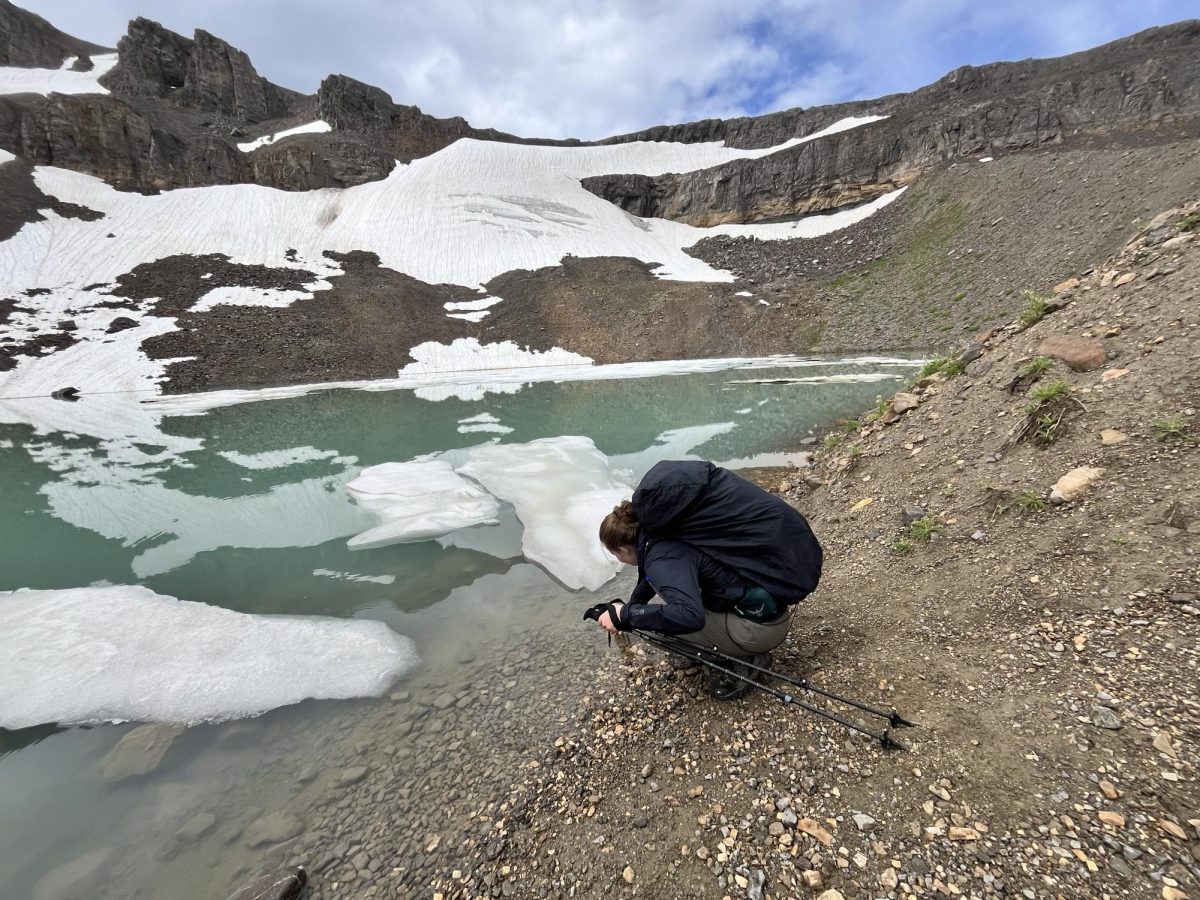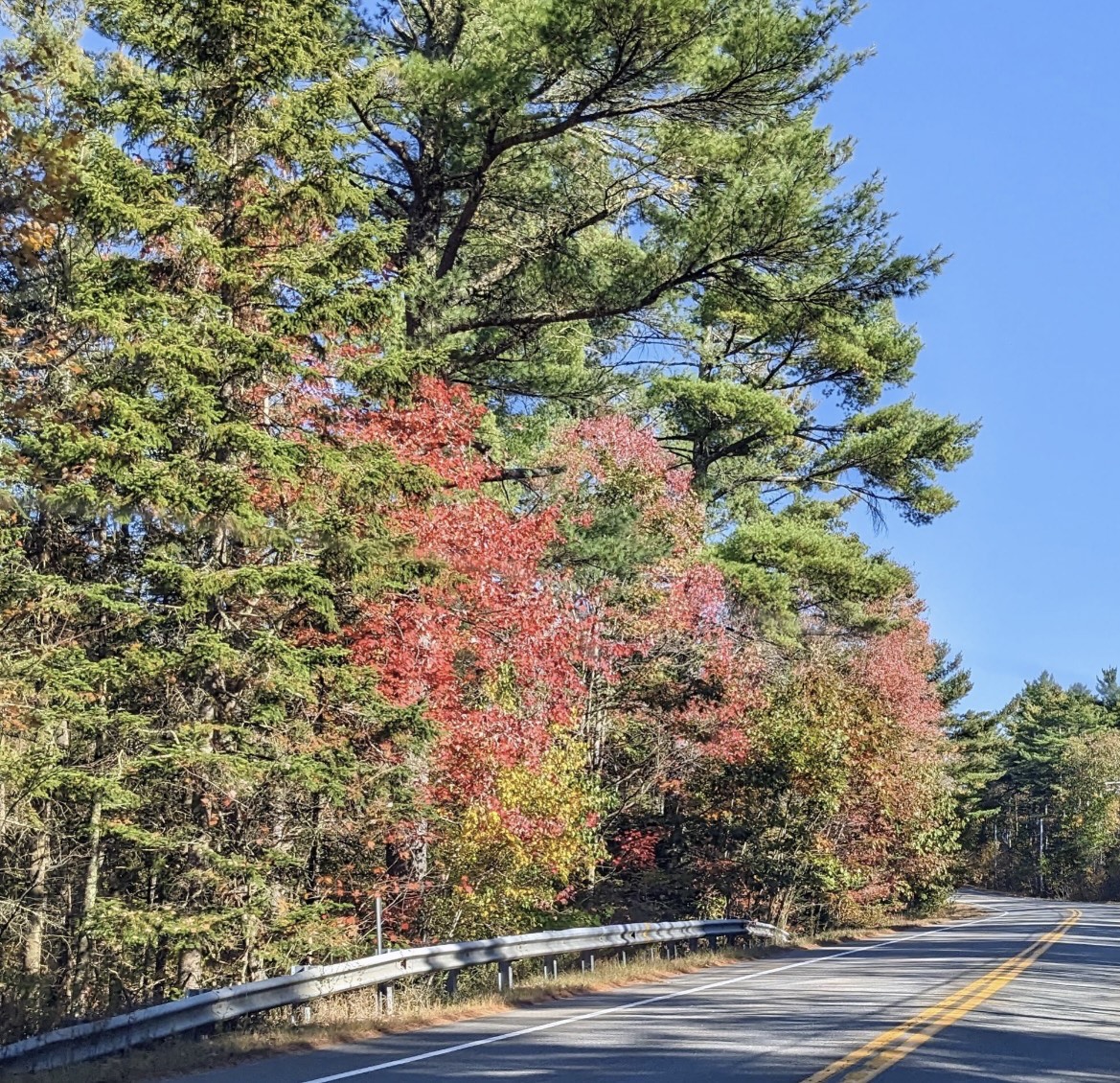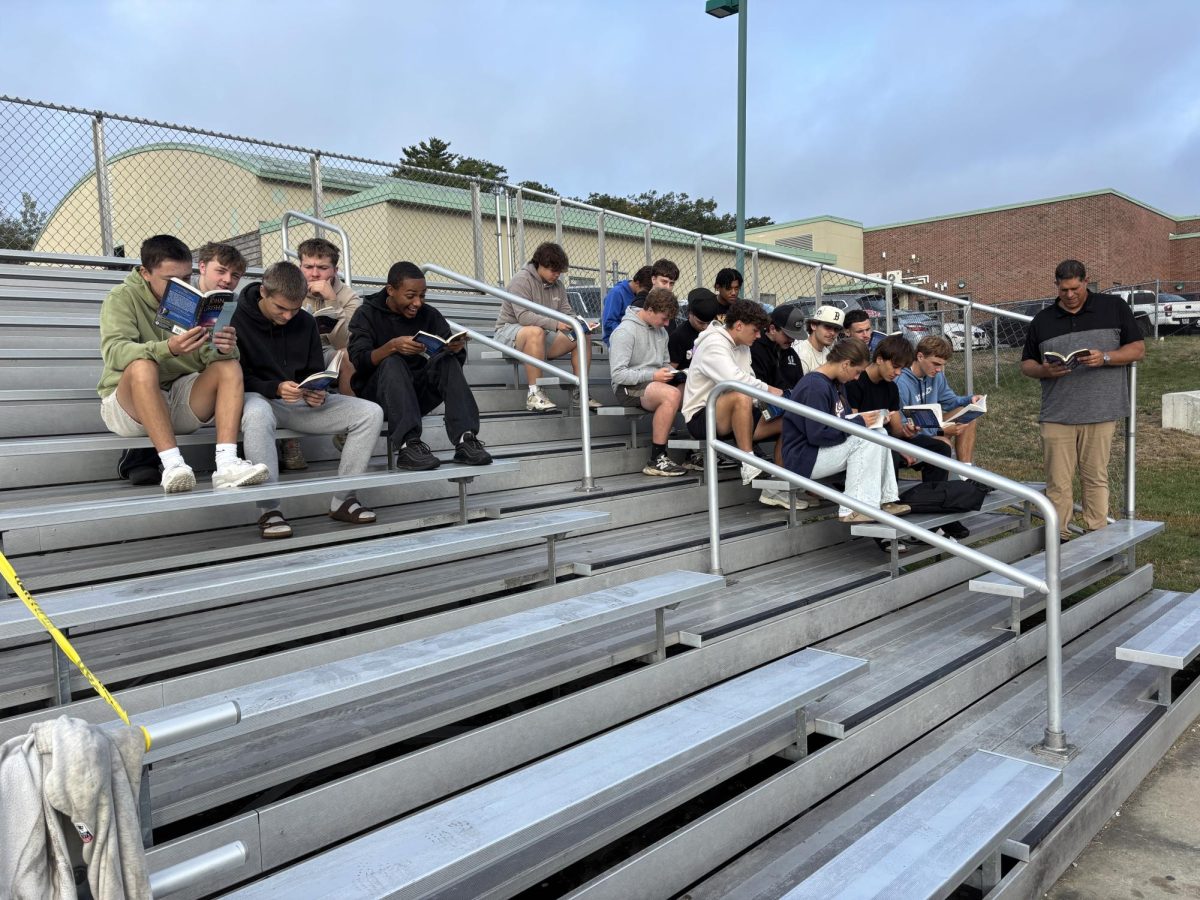The majority of people enjoy summer better than any other season. Due to the extension of the warmer weather, this past summer season has lasted longer than in past years. Why do you think this is? Is this a product of climate change?
Science teacher Mr. Nicolas Kostich shares, “As the climate has warmed in New England, we’ve seen a number of record summers, with this past summer being the hottest globally on record, and a top five hottest summer in Massachusetts.”
Although Oakmont Meteorology teacher Mr. Daniel Dufour states that climate change is 100% real, this is, in fact, not climate change. It’s just the El Nino and La Nina weather patterns. This pattern occurs in the Southern Pacific, affecting the rest of the world, and is commonly interpreted as climate change, although it is not.
These two weather changes occur every couple of years, and because of their resemblance, people who don’t understand the El Nino and La Nina patterns think it’s climate change.
Global warming is defined as long-term shifts in temperatures and weather patterns. These shifts may be natural, but since the 1800s, human activities have been the main driver of climate change, primarily due to the burning of fossil fuels (like coal, oil, and gas), which produce heat-trapping gasses.
NASA’s Goddard Institute for Space Studies states, “August 2024 set a new monthly temperature record, capping Earth’s hottest summer since global records began in 1880.” The atmospheric concentration of carbon dioxide is increasing causing temperatures to rise drastically.
The abundance of carbon dioxide in the atmosphere is causing the ozone layer to deteriorate, allowing increasing amounts of harmful UV rays to enter. This will lead to a higher prevalence and severity of skin cancer. Meanwhile, the trapped heat contributes to the rising temperatures on Earth.
Sophomore, Emma Goodwin, at Oakmont Regional High School adds, “I think people don’t fully realize how much global warming will affect us and if we don’t start changing the way we live then it will get worse sooner than people think.”
Change needs to come soon. Some people are oblivious to the fact that climate change will soon affect everyone. To better understand how much the world is heating up, let’s look back in time at previous years’ climate trends.
Ever since 1880, when records of the climate state were kept, the temperature trend started to rise. Based on the National Centers for Environmental Information, “The global land temperature for 2015 was [34.394°F] (2.39°C) above the 20th-century average, surpassing the previous records of 2007 and 2010 by [32.45°F] (0.45°C).”
Similarly, some more information about these trends in 2020 includes: “The 2020 Northern Hemisphere land and ocean surface temperature was the highest in the 141-year record at +1.28°C (+2.30°F) above average. This was 0.06°C (0.11°F) higher than the previous record set in 2016.” Studying and comparing these climate changes proves that the earth’s temperature keeps rising.
As these land temperatures rise, glaciers will melt because of the excess water. This destroys beautiful habitats by releasing fresh water into the ocean changing the saltiness making the water less dense and then changing the currents. Although the waters will rise because glaciers are melting, the precipitation patterns will also change. Decreasing rain, snow, and ice cover will result in longer dry spells, making forest fires more common.
For example, in 2020, the wildfires in California were mainly caused by human activity, climate change, and drought. Close by, in Utah, the Great Salt Lake has drastically shrunk in size by 73% because of these huge dry spells that last for years.
Many people think climate change is not real – it’s a conspiracy theory they say – but are they really looking at the facts? No, they aren’t.
The truth is that if we don’t change something it will be detrimental. According to The World Economic Forum, “It predicts that by 2050, the climate crisis could cause an additional 14.5 million deaths, $12.5 trillion in economic losses, and $1.1 trillion in extra costs to healthcare systems around the globe.”
Climate change does not only affect the world around us but it is embedded into our lives by having an economic impact. Inflation in the U.S. is even climbing by 1.2 % each year because of global warming. Also, don’t forget about your town locally. In 2023, Oakmont experienced our April vacation taken away because of the winter weather extremes. Power lines and trees were falling everywhere, and it cost money to get everything back to the way it was.
Kostich explains, “Just because it’s a warmer year overall doesn’t mean it won’t go below freezing during the winter. While I don’t feel I can make any specific predictions, warmer air holds more water and hotter temperatures lead to more evaporation. That increases the likelihood that we get lake effect snow rolling in from the west which could lead to major snowfall events. What we’ve seen over the past few years is that we get large amounts of snow that quickly melt away. It will be interesting if that repeats itself again this year.”
The lake effect occurs when cold air moves across the open waters of large lakes. As the cold air passes over the unfrozen and relatively warmer waters of these lakes, warmth and moisture are transferred into the lowest portion of the atmosphere resulting in heavy snowfall.
Dufour has a similar perspective in the way that this upcoming winter could be a strong one. According to Dufour, “The El Nino season creates a worldwide change in weather patterns, typically to an extreme. During a La Nina season, you return to regular, if not stronger, weather that is typical to your area. So, I think, going into a La Nina season, we could see a stronger winter.”
Previously, in New England, we experienced a huge freeze that took power away from many homes. Roads were dangerous and icy and tree branches were snapping off and falling everywhere. Climate change is a dangerous threat to our society that we need to make a better effort in trying to fix.
“We’re seeing the climate zones in the country starting to shift north which indicates that folks are going to be able to grow different plants in about half of the country and puts additional stress on native species that may not be adapted to the hotter average temperature and changed levels of precipitation,” comments Kostich. This could mess with all aspects of life and how we live.
Let’s take a step back from all the deep things about climate change. Many people our age enjoy the ski and snowboard season. They love the thrill of flying down a mountain having no care in the world and just having fun.
According to Megan Vance, a junior at Oakmont Regional High School, “Global warming stinks.” That sums it up perfectly in one of the most basic ways that everyone should understand, but also one of the most straightforward ways.
Global warming has a huge impact on our daily lives. Soon, the summers will be exceptionally hot, making us unable to enjoy our free time outside of school and the winters will cease to exist. Many people enjoy winter sports like skiing and snowboarding, but what happens when there is no more snow? Frosty the snowman said, “Don’t you cry; I’ll be back again someday!” The sad truth is that Frosty will not exist in the future because of the hot temperatures. Heatmiser will win.























Kaitlyn Renda • Nov 26, 2024 at 9:57 am
this is so sad!